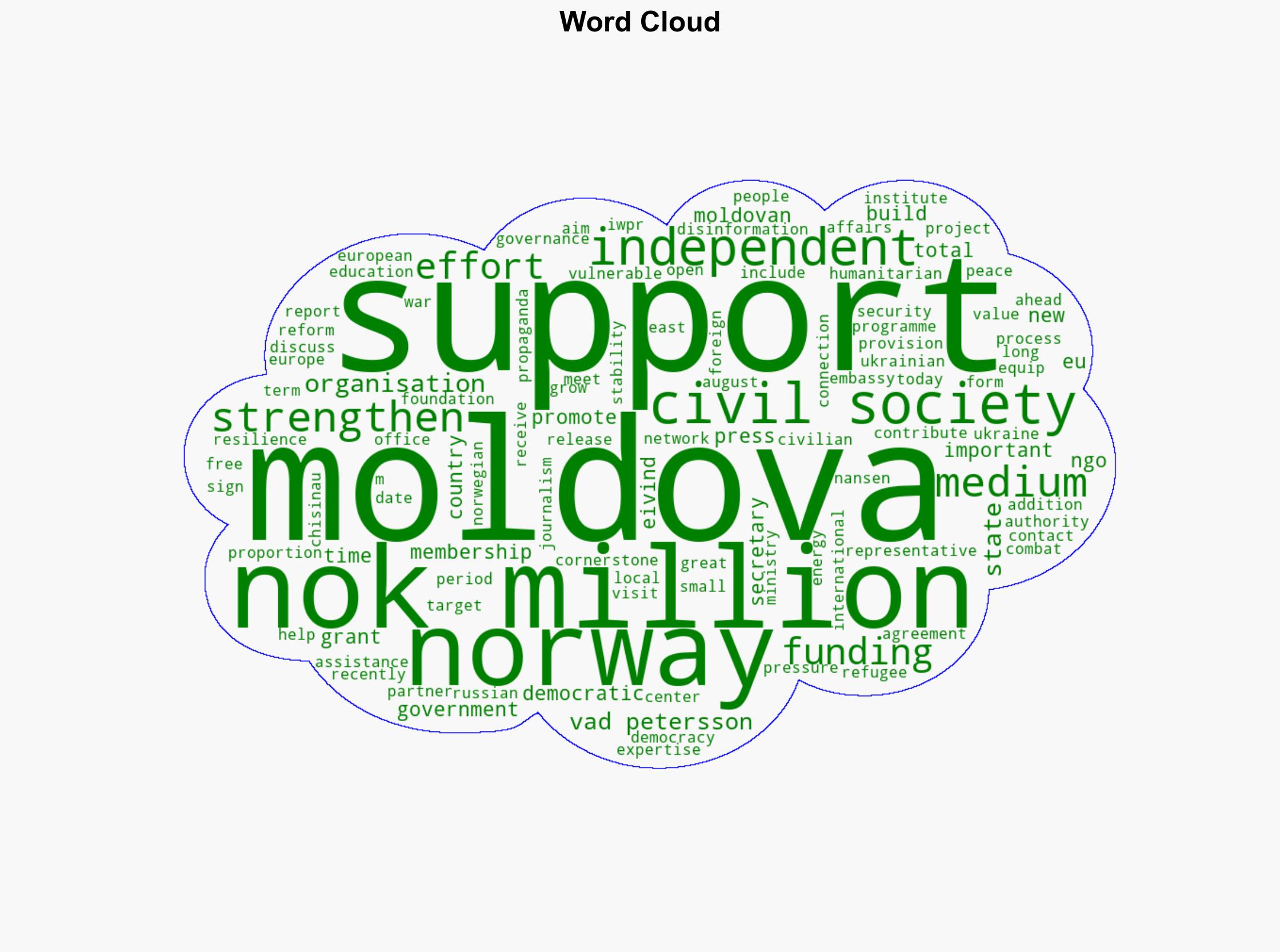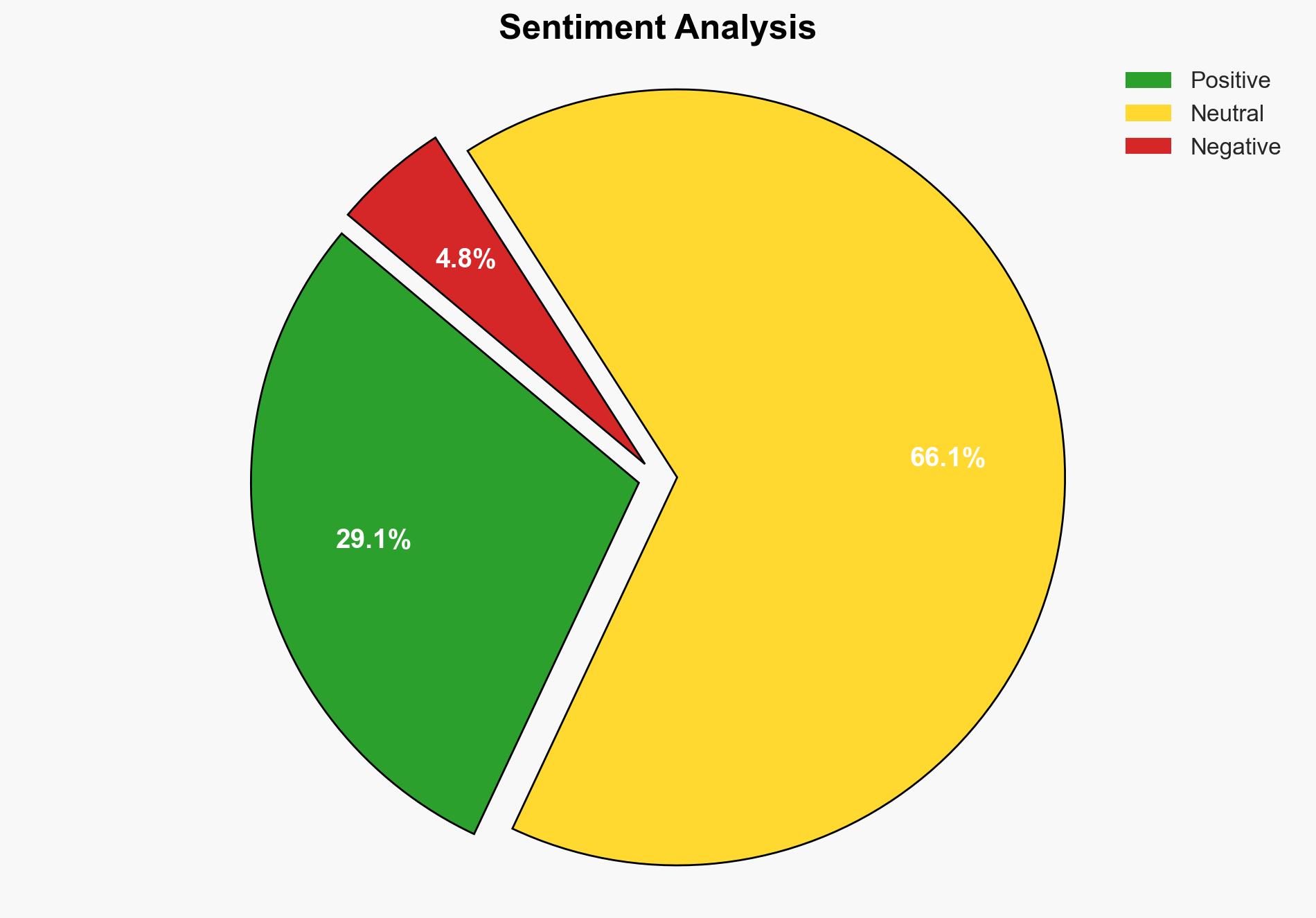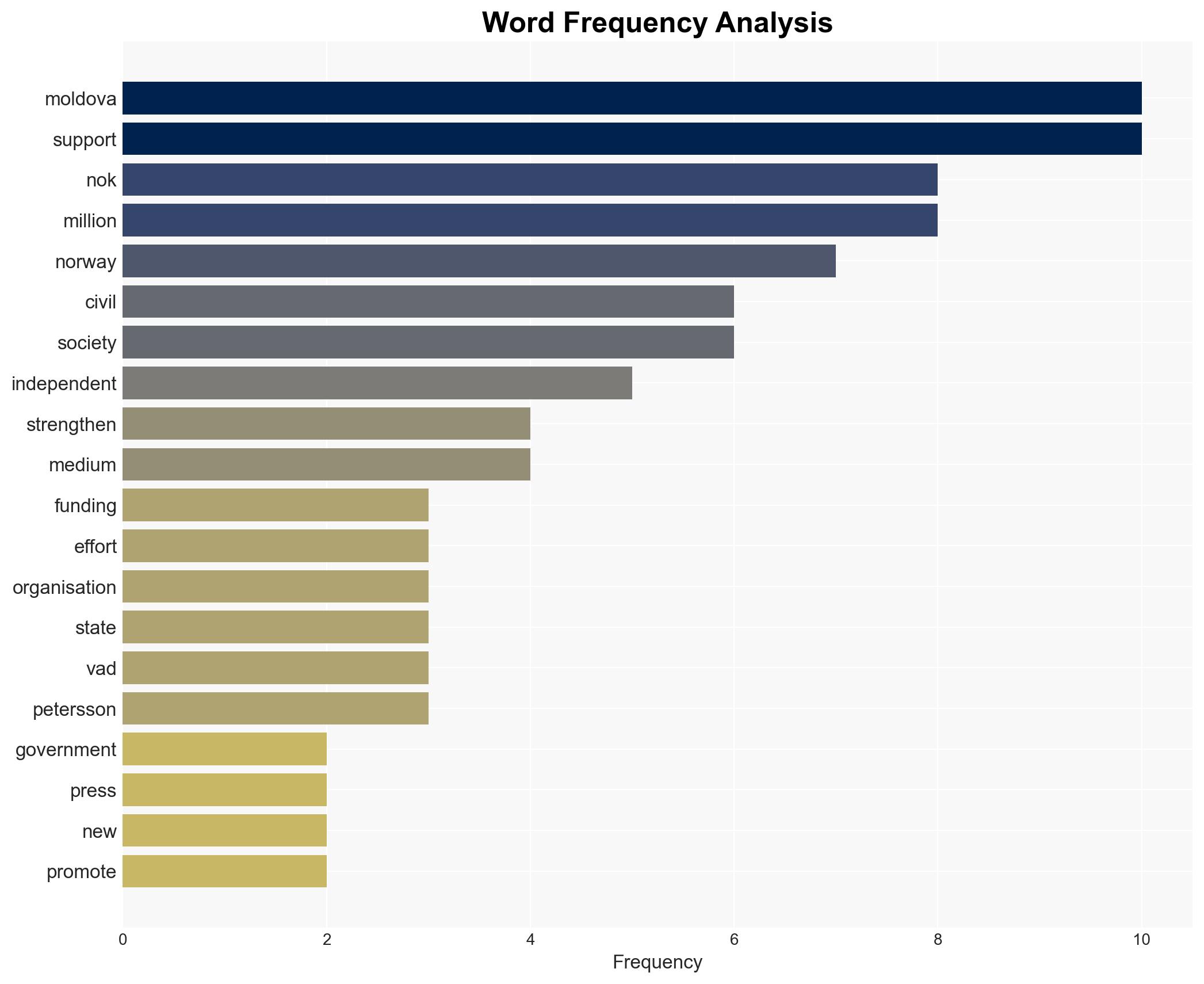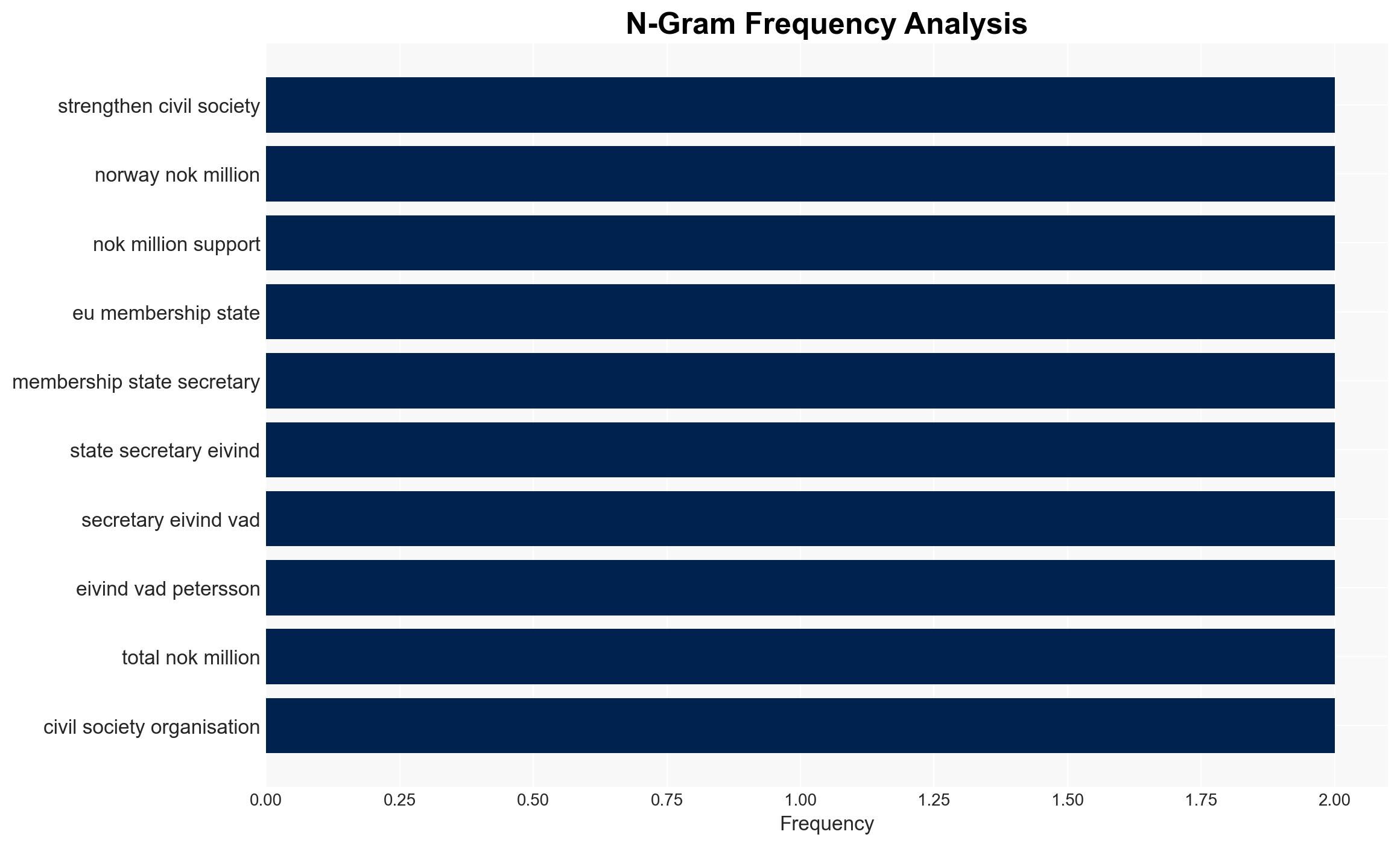Strengthening civil society in Moldova – Globalsecurity.org
Published on: 2025-11-12
AI-powered OSINT brief from verified open sources. Automated NLP signal extraction with human verification. See our Methodology and Why WorldWideWatchers.
Intelligence Report: Strengthening civil society in Moldova – Globalsecurity.org
1. BLUF (Bottom Line Up Front)
The most supported hypothesis is that Norway’s funding and support for civil society in Moldova is primarily aimed at bolstering democratic institutions and countering Russian influence, thereby facilitating Moldova’s EU membership aspirations. Confidence Level: Moderate. Recommended action includes increased monitoring of the effectiveness of these initiatives and potential expansion of similar programs by other EU states to ensure comprehensive support.
2. Competing Hypotheses
Hypothesis 1: Norway’s support is primarily aimed at strengthening Moldova’s civil society to promote democratic reforms and facilitate EU membership.
Hypothesis 2: Norway’s support is a strategic move to counter Russian influence in Moldova by empowering independent media and civil society organizations.
Assessment: Hypothesis 1 is more likely given the explicit mention of EU membership facilitation and democratic reform promotion. However, Hypothesis 2 cannot be discounted due to the geopolitical context and the emphasis on combating disinformation, a known tactic of Russian influence.
3. Key Assumptions and Red Flags
Assumptions:
– Norway’s funding will be effectively utilized by Moldovan civil society organizations.
– The Moldovan government will cooperate with and support these initiatives.
Red Flags:
– Potential misuse or misallocation of funds by local organizations.
– Resistance or lack of cooperation from Moldovan government factions influenced by Russian interests.
Deception Indicators:
– Public statements by Moldovan officials that contradict actions on the ground.
4. Implications and Strategic Risks
The primary risk is the potential for increased Russian disinformation campaigns and political pressure on Moldova as a reaction to these initiatives. Additionally, there is a risk of internal political instability if factions within Moldova oppose these reforms. Cyber threats targeting both Moldovan and Norwegian interests could escalate as a form of retaliation.
5. Recommendations and Outlook
- Actionable steps include establishing robust monitoring and evaluation frameworks for funded projects to ensure accountability and effectiveness.
- Encourage other EU member states to provide similar support to create a unified front.
- Best-case scenario: Moldova successfully implements reforms, strengthens its civil society, and progresses towards EU membership.
- Worst-case scenario: Increased Russian influence and internal instability derail reform efforts, leading to a setback in EU integration.
- Most-likely scenario: Gradual progress with intermittent challenges from both internal and external actors.
6. Key Individuals and Entities
Eivind Vad Petersson, Norwegian Ministry of Foreign Affairs, East Europe Foundation, Institute for War and Peace Reporting (IWPR).
7. Thematic Tags
National Security Threats, European Union Integration, Russian Influence, Civil Society Development, Democratic Reforms
Structured Analytic Techniques Applied
- Cognitive Bias Stress Test: Expose and correct potential biases in assessments through red-teaming and structured challenge.
- Bayesian Scenario Modeling: Use probabilistic forecasting for conflict trajectories or escalation likelihood.
- Network Influence Mapping: Map influence relationships to assess actor impact.
Explore more:
National Security Threats Briefs ·
Daily Summary ·
Methodology





